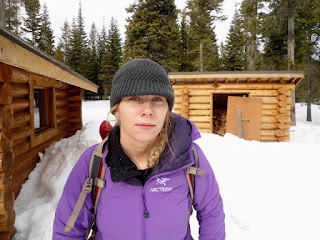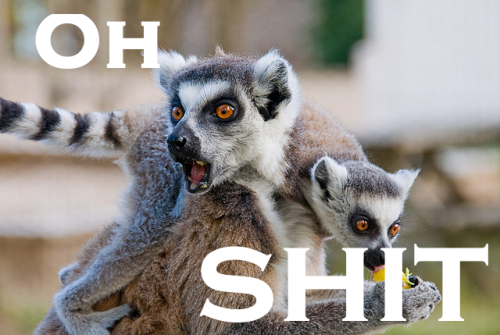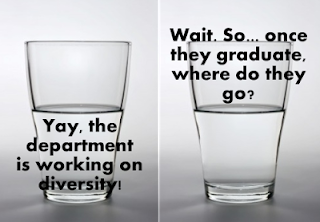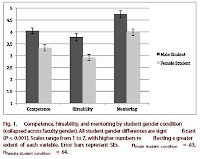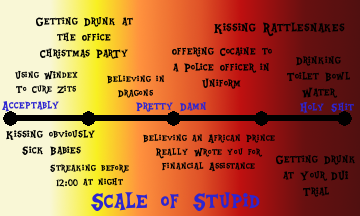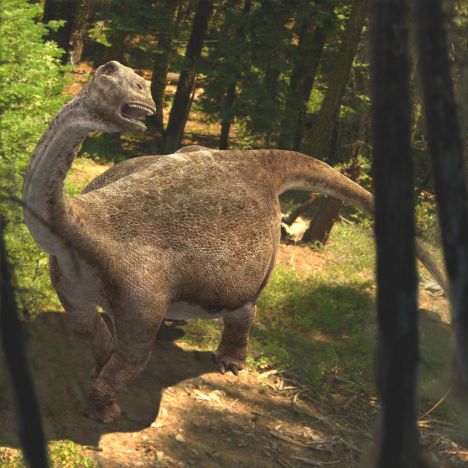They're two groups that claim to want more women in STEM but are not being very damn helpful about it.
Let's start with Ivanka. She's made her dad sign the Inspire Act and the Promoting Women in Entrepreneurship Act, laws that dictate NSF and NASA need to work to get women and girls interested in science (assuming that they somehow aren't already). Simultaneously, she stood by as her father cut the budget for education in general, scrapped funding for the biggest science-funding organizations in the nation (aka our federal government), and froze national hiring of federal science positions, ensuring that this year's crop of graduates are even more screwed in their career search than normal. Personally, we don't see the damned point in getting women into STEM, if you then ensure they can't get jobs afterwards.
 |
| All internships and no job makes Amy a dull girl |







